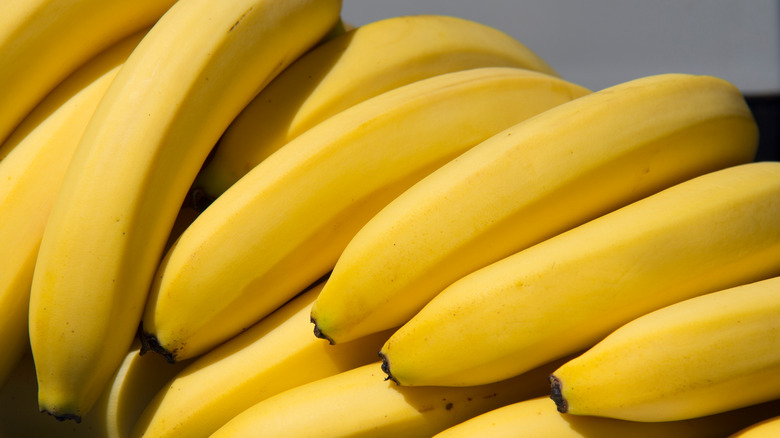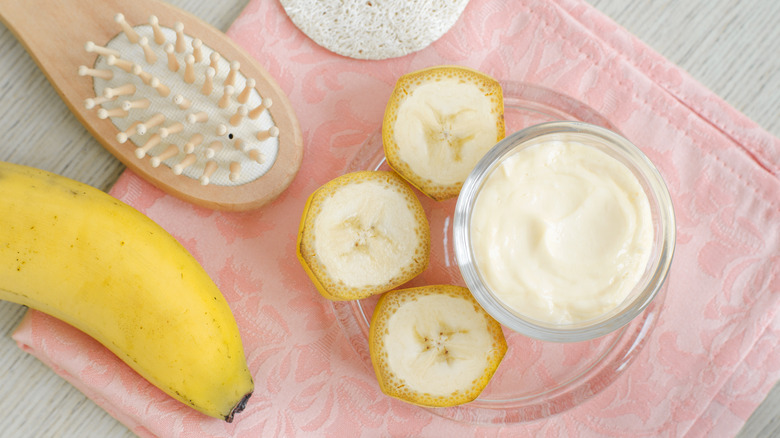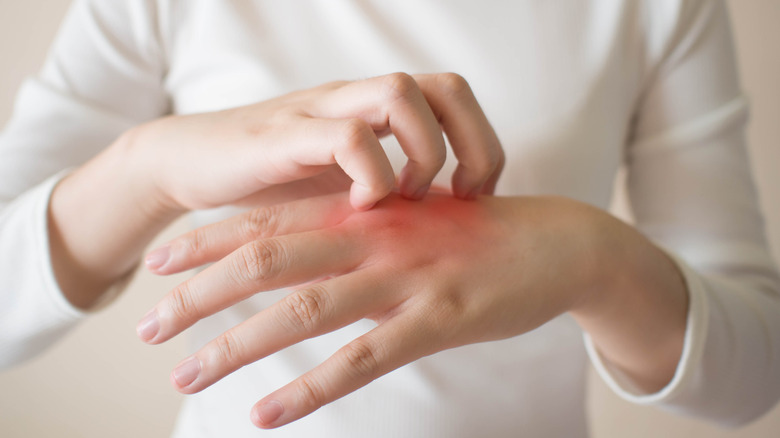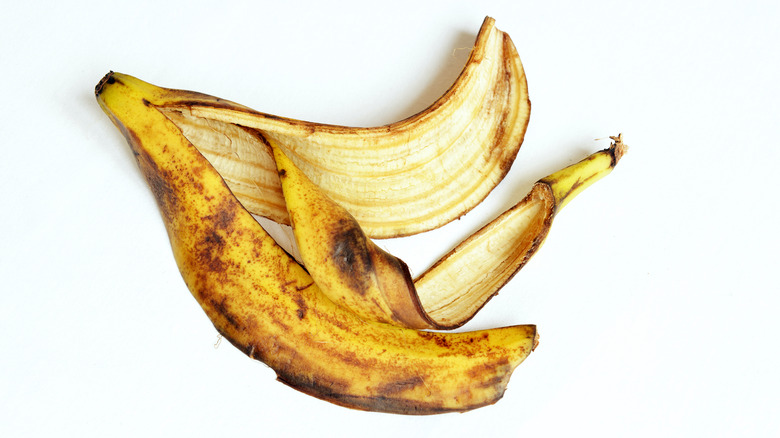Read This Before Throwing Away Your Banana Peels
Low waste efforts in the kitchen are trendy, sure, but the intention far surpasses any mainstream craze. At-home efforts like composting have become a popular way to introduce sustainability into many people's lifestyles, and for good reason — we have a serious food waste problem.
Every year, according to a Food Loss and Waste report from the U.S. Food and Drug Administration, between 30 to 40% of the entire American food supply chain ends up dumped in landfills each year. Further, the Environmental Protection Agency cites that food waste makes up about 30% of what we toss out in general — much of which can be used for alternative purposes or sustainably decomposed. So, composting coffee grounds, leftover food rinds, fruit and vegetable skins, and eggshells is a pretty good place to start. And if you're already composting, consider all the at-home remedies that the produce in your fridge can provide.
Banana peels are a common culprit found in garbage cans. In reality, there's no reason banana peels should be discarded when their rich nutrients can actually benefit soil and even a number of skin and cosmetic ailments. Next time you find yourself looking for the nearest garbage, catch yourself — here's how your leftover banana peels can help soothe your skin.
Use leftover banana peels to help treat acne
The term "acne" is generally used to refer to the common condition of facial blemishes, though it's also quite the umbrella term under which a variety of skin conditions exist, some much more severe than others. Every year, according to MDacne, the U.S. spends some $3 billion on over-the-counter acne treatments, and an additional $3 billion on prescription treatments and visits to the dermatologist. Don't expect a slice of banana peel to completely eradicate hormonal cystic acne or more severe conditions, but it may benefit the more superficial blemishes on your skin.
Banana peels are rich in vitamins A and C, both which are useful when combatting pesky acne. Vitamin A helps to calm any inflamed, irritated patches of skin, while vitamin C is particularly helpful in treating acne scars and hyperpigmentation (via Healthline). Creating a face mask and gently rubbing the inside of the banana peel into the affected areas for several minutes is an easy way to help your skin absorb these nutrients, says Phoebe Zaslav of In The Know.
Treat rashes, itchy skin, and splinters with peels
Red, itchy, bumpy rashes caused by poison ivy and bug bites are no fun, but you can treat them naturally, right at home if you have a banana peel on hand.
The antimicrobial, antioxidant, and anti-inflammatory components found in the skin of a banana are organic first-aid treatments. Irritated skin from bug bites and poison ivy benefits from soaking up vitamins A, B, C, and E, and, as a result, usually sees relief from nonstop itch (via Healthline). It goes without saying, but use your best judgment; over-the-counter relief products work, so it's still good to have those on hand if a banana peel doesn't cut it.
Aside from soothing rashes, the enzymes found in a banana's peel can actually help in the painful process of removing splinters — and make it way less bothersome. When applying the inside of a banana peel to the area for five to 10 minutes, the enzymes go to work and help bring the splinter to your skin's surface, per In The Know, making removal quick and easy from there.
Banana peels could help prevent sun damage
The importance of daily sunscreen application is incontestable, so certainly do not replace that part of your skincare routine with only a homemade banana face mask. However, adding the boost of vitamin power found in a banana peel might just add some extra protection to your skin.
As we know, bananas possess potent vitamins A, C, and E, which when applied topically may work naturally with your skin and aid in preventing sun damage. It won't be as powerful as the SPF 50 in your cosmetics drawer, but the link between nutrition and skin health has been studied for centuries (via PubMed Central), and natural elements like fatty acids, zinc, antioxidants, and other nutrients are beneficial skin supplements and protective agents.
So, aside from containing high amounts of potassium and starring on top of your morning peanut butter toast, bananas — more specifically, their peels — can act as a skin treatment in various ways. Try these methods out before composting, and who knows, maybe you'll find other uses for your banana peels along the way.



